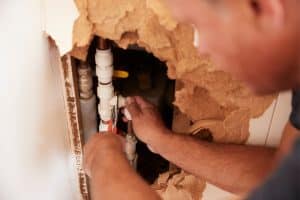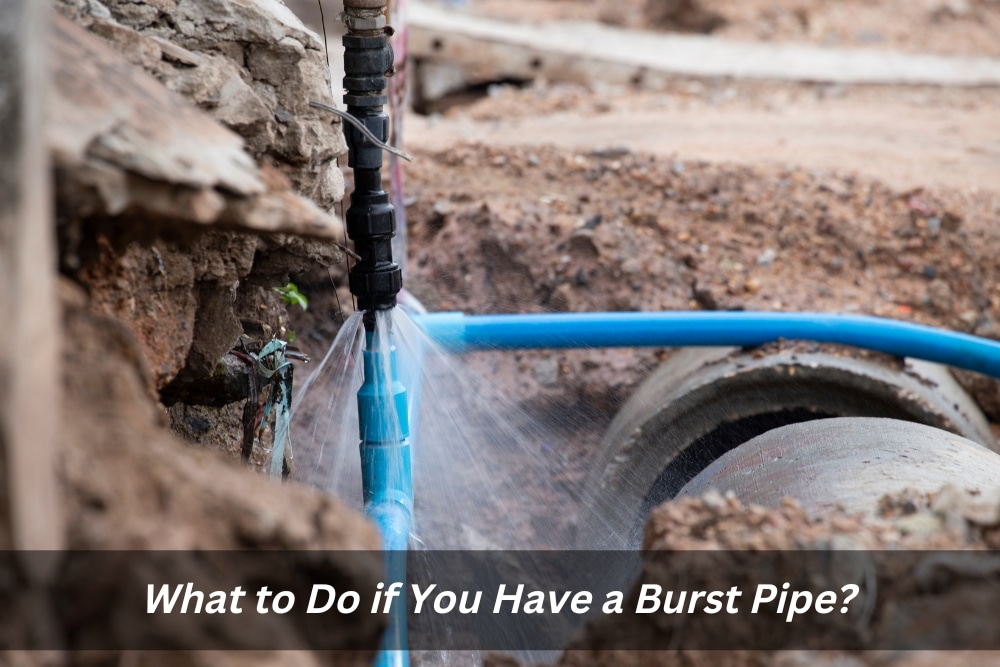What is pipe bursting?
Pipe bursting is a condition in which pipes burst or leak, often due to corrosion. If you see any signs of a pipe burst, such as water spilling out onto the ground, quickly turn off the water supply and call an emergency plumber. If you can access the leak, try to plug it in rags or buckets.
Also, if you have a burst pipe, it is important to take action quickly. The longer the water flows, the more damage it can cause to your home. If you have a burst pipe, you should shut off your water meter and call plumbing services professional immediately. You’ll want to do this before turning off the water at the main valve because turning off the valve may interrupt service for other homes in your area. You also want to keep an eye on how much water is flowing out of the pipe. If there’s not much water coming out or if it seems like it’s slowing down, then there may not be any damage done yet and you can wait to call a plumber until after they turn off their meter. However, if there are a lot of amounts of water coming out.
Bursting pipes can cause a lot of destruction, both environmentally and structurally. There are three main types of pipe bursting: sudden pressure failure, gradual pressure failure, and overpressure rupture. Prevention involves understanding the risk factors for pipe bursting and taking steps to reduce them. The most common causes of sudden pipe bursts are improper installation or maintenance; changes in atmospheric conditions (such as high humidity); gas migration; loss of integrity of the piping system; and manufacturing defects in materials or construction techniques.
What are the consequences of a burst pipe?
It is important to shut off your water supply by turning off your main valve if you are not sure where the leak is coming from. If you can’t find it, call a plumber or turn off the water on the street. Next, use a hair dryer to dry up as much of the excess water as possible. This will help prevent mould and mildew from growing in your crawl space or basement.
If there was no insurance companies’ coverage for burst pipes, then homeowners would be responsible for all of their expenses related to repairing or replacement of their pipes. If they have an insurance company that covers burst pipes.
A burst water pipe can cause a lot of damage to your home, both immediately and in the long run. They often lead to water leaks and flooding, which can damage furniture, appliances, flooring, and more. Clogs, corrosion, and frozen pipes are the most common causes of burst pipes. Burst pipes can happen due to movement or a buildup of pressure from a clog. If you suspect that you have a burst pipe, it is important to take action as soon as possible to minimize the damage.
Burst pipes can have a number of consequences beyond just water damage. For example, if a burst pipe leads to a gas leak in the home, it can be very dangerous. Additionally, if the burst pipe results in decreased water pressure, this may cause problems with the home’s plumbing system. In some cases, professional repair of a burst pipe can be expensive.
Burst Pipe Signs
Burst pipes can cause a lot of damage in a short amount of time. They continuously leak water until the supply is off, so the puddle grows quickly. People often realize when their plumbing breaks because of large puddles of water in their house that happen in the early stages of water flowing out. Sound, especially when homeowners are away, is an indication of a broken pipe. Trickling sounds typically occur with leaks, or gurgling when water rushes out. Buying too much water also adds to the bill. If you think you have a burst pipe, turn off your water supply as soon as possible and call a plumber.
If you see any of the following signs, it means that you have a burst pipe and you should take action as soon as possible: water is leaking from the walls or ceilings, water is pooling in one area or multiple areas, the water pressure has decreased, your water bill has increased for no reason, or there is an unexplained drop in temperature.
How do prevent pipes from bursting?

Burst pipes can be a huge inconvenience and cause a lot of damage. The most common reason for a pipe to burst is when the temperature drops quickly and the water inside the pipe freezes. There are several things homeowners can do to prevent their pipes from bursting, including insulating them, repairing or replacing old or weak pipes, locating main water shutoff valves, and keeping an eye out for leaks. Following these simple tips can help keep your home safe from burst pipes.
Burst pipes can cause a lot of damage and are often difficult to repair. However, there are some things you can do to help prevent them from happening in the first place.
- Check for clogs and blockages regularly. This will help keep the water flowing freely and will reduce the risk of pressure build-up.
- Make sure the water pressure is high enough. If it’s too low, it can put stress on the pipes and increase the likelihood of a rupture.
- Insulate properly. Pipes that aren’t insulated properly are more likely to freeze during cold weather spells and could burst as a result.
- When replacing or repairing a pipe, make sure it’s certified as leak-proof and load-bearing. If it’s not, it could put too much pressure on the other pipes and cause them to burst as well.
Keep your pipes clean
There are a few things you can do to your home to prevent pipes from bursting during extremely cold weather. Try to keep your thermostat at 55°F degrees, turn on faucets to help water flow, open cabinet doors under sinks to help heat escape through the pipes, caulk and seal any leaks that let cold air pass near cold water pipes, and pay particular attention to unheated areas like basements, attics, crawl spaces, and outside rooms.
Inspect your pipes regularly
Burst pipes can cause a lot of water damage and are often difficult to repair. They can be caused by a number of factors, including cold or freezing weather, overuse, and old age. Homeowners should take preventative measures to avoid burst pipes, such as checking for burst pipe repair during the winter, opening doors in closets to let warm air circulate around the exposed pipes, and replacing major water lines when they start to show signs of wear.
Insulate your pipes properly
Insulating your pipes is a very important step in preventing them from bursting during the cold winter months. Pipe insulation can be done in a variety of ways, but it is important to do the work properly so that you don’t have to do any repairs down the road. If you take care of this step now, you’ll avoid costly repairs down the line.
Know how to turn off the water in case of a leak
In case of a water leak, it is important to know how to turn off the water. First, shut off the main water supply to the home by finding the valve and turning it to the “off” position. Next, use a garden hose or other means to drain any remaining water from the pipes. Finally, shut off the cold water or hot water heater by locating the switch at the bottom and flipping it to the “off” position. Finally, check each faucet for leaks by shutting them off and then turning on the faucet slowly. If there is a leak, you will see water coming out.
What to do if your pipes have already burst?
If you see signs of a burst pipe in your house, turn off the water supply at the main as soon as possible. This will help minimize the damage done to your home. Once you’ve turned off the water, call an emergency plumber to locate and fix the pipe that burst. While you wait for the plumber, try to move furniture and any valuable items away from the burst pipe. You need to follow these:
- Shut Off the Water
- Call a plumber
- File an insurance claim
- Clean up the damage
How to fix a burst pipe
If you have a burst pipe, the first thing you should do is call a plumber. Depending on the size and location of the break, there are various methods that can be used to fix the pipe. You should also look for any signs of water damage and try to determine where the pipe burst. There are a variety of ways to fix a burst pipe, including using a plunger, using water pressure, or calling a plumber.
There are several ways to fix a burst pipe, but the right one depends on the severity of the leak and how much water is leaking. If you can’t find a method that works within minutes, it’s time to call a plumber. Remember to turn off all unnecessary appliances before trying to fix a burst pipe this will help conserve energy and prevent further damage. If you don’t have access to tools or experience fixing burst pipes, call RestorationSOS for help.


